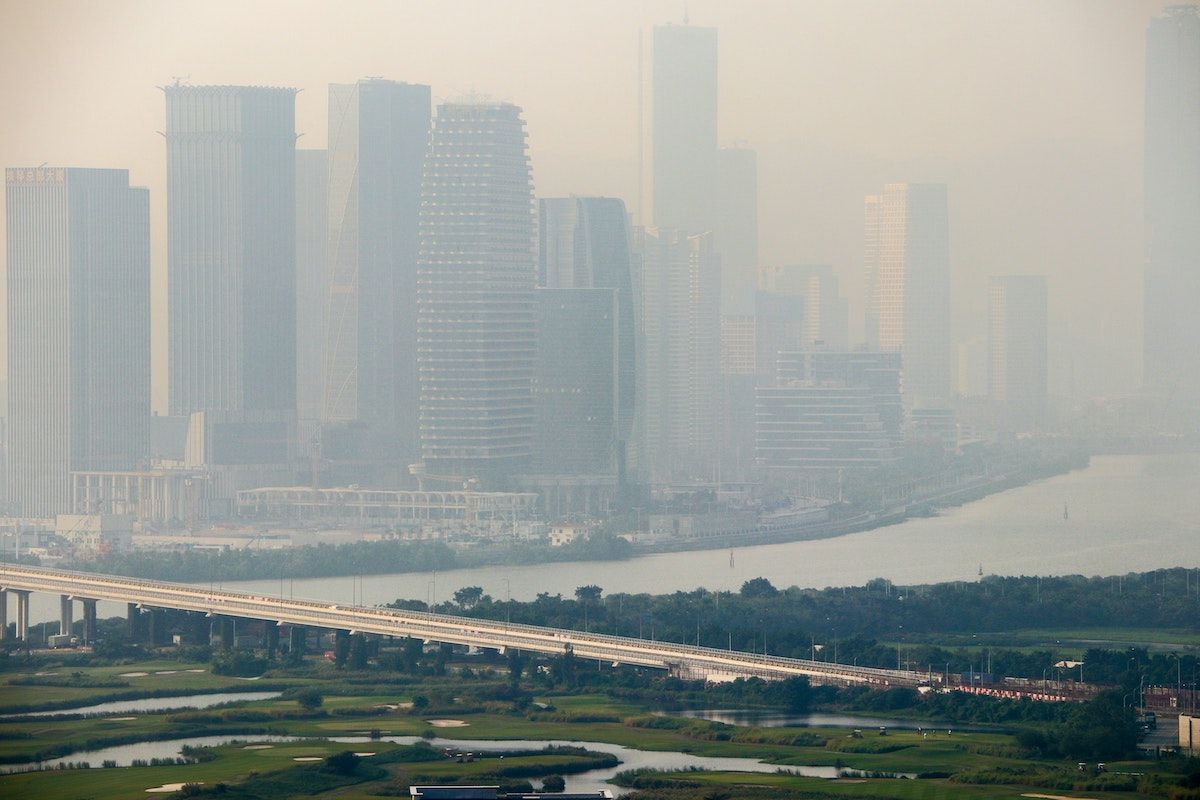0
Effects of industrialization on the environment
Jan 5th, 2021 | by Simran Panjwani

Ranging from the food we eat to the clothes we wear, everything that happens in this world affects the environment in one or the other way. In today's world, there is hardly any sector left that is not influenced by industrialization and technological innovation. Although industrialization has brought economic growth and development, it has led to various adverse effects on the environment.
We abuse land because we regard it as a commodity belonging to us. However, when we see land as a community to which we belong, we may begin to use it with love and respect
~ ALDO LEOPOLD
The Industrial Revolution (History of industrialization)
Industrial Revolution refers to a change from an agricultural and handicraft dominated economy to machines and technology-driven economy.
The industrial revolution in India began in the 18th century with the establishment of the first textile mill in Calcutta. It led to technological, socio-economic and cultural changes. Technological changes include an increase in the use of steel and iron, development of new energy sources like coal and steam engine, electricity and petroleum, the invention of new machines, and advancement in the transportation and communication sector.
As the population increased heavily, there was a spike in the consumption of natural resources. The use of coal and other fossil fuels for operating equipment and machinery also increased tremendously.
Effects of Industrialization on Environment
Industrialization is important for the development of the country, however, it has led to various environmental problems. It is believed that most of the problems like global warming, reduction in biodiversity and loss of habitat are caused due to the industrial revolution.
The major effects of industrialization are - air pollution, water pollution, soil pollution, and destruction of habitat.
Air Pollution

According to researchers, industries have been the primary reason for air pollution. This is because industries discharge various harmful gases and pollutants like nitrous oxide and hydrofluorocarbons into the air. The burning of fossil fuels also adds to the pollution. Increased content of carbon dioxide and methane in the air leads to a rise in the temperature.
Water Pollution

The various industrial processes such as mining, fossil fuel burning, foundries, and waste from industries are the major contributors to water pollution. Mining involves the crushing of rocks and the extraction of minerals. This leads to the release of hazardous substances like sulfides and toxins into the water. Fossil fuel burning leads to acid rain which further paves its way to water sources. Industries also release harmful substances directly into the water bodies leading to water pollution.
Soil Pollution
Industrial waste such as radioactive waste, minerals, and oil are not disposed of properly and lingers on the soil surface leading to soil pollution. Mining and extraction of minerals from the soil are major contributors to soil pollution.
Wildlife Extinction
The expansion of industries is responsible for the loss of natural habitat leading to the extinction of various species. Also, there are various industrial accidents such as oil spills, fires, leakage of radioactive materials which have caused severe damage to wildlife.
Global Warming
The release of several harmful greenhouse gases such as smoke and carbon dioxide from the industries in the atmosphere has led to a high rise in global warming.
Biodiversity Loss
Extinction of wildlife and loss of habitat is mainly caused due to the release of chemical wastes, pesticides, and radioactive materials from the industries.
Main causes of Industrial Pollution
- Lack of proper policies to manage industrial wastes. Proper policies and laws along with proper implementation are not available to manage industrial growth.
- Use of old and outdated technologies that produce a large number of harmful wastes. Most of the industries use old inefficient machines and technology that causes high-level pollution.
- Inefficient waste disposal techniques. Waste disposal methods are not implemented properly causing lingering waste on soil and in water.
- Unplanned and extensive use of natural resources. The natural resources are used heavily without planning and techniques.
- Improper industrial growth. Industrial growth has taken place without taking into account its effects on the environment and ecosystem.
Ways to control industrial pollution
Recycling
Polluted water and wastes from the industries should be recycled as much as possible to control industrial pollution.
Proper Waste Management Techniques
With the help of proper waste management and disposal methods, industrial pollution can be reduced.
Afforestation
More and more trees should be planted to restore the natural habitat of the animals.
Stricter Laws and Enforcement
The Environmental Protection Agency (EPA) that supervises the effects of industrial processes on the environment needs to make stricter regulations and should also implement them strictly.
Involvement of Local People
To solve problems like water and soil pollution, the involvement of local people is very important. Awareness programs and campaigns can be used to spread awareness.
Supervision of Industries
Industries should be kept under supervision and proper assessment of the industries should be done. If there is any harmful impact discovered then proper action should be taken against them.
The Sustainable Development
Sustainable Development refers to the process of meeting the needs of the present generation without compromising the ability of future generations to meet their own needs.
It is a process in which the development takes place in such a way that it does not destroy the environment and wildlife.
The practice of sustainable development should be increased. The main aim is to conserve natural resources along with stable economic growth. Everybody has the right to a better standard of living with proper job opportunities. And for this, education is more important, with the help of which we can achieve major milestones.
0
Author